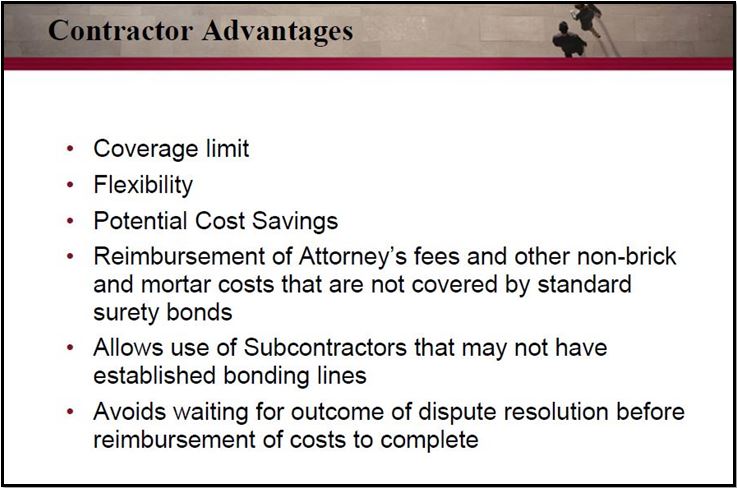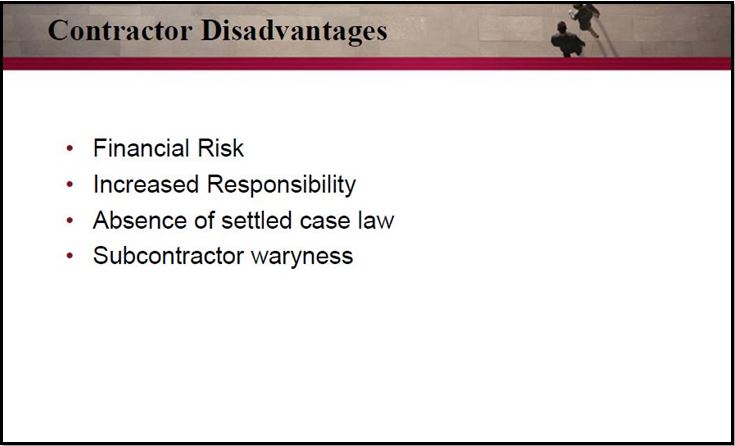By Steve Rizer
Many owners do not understand subcontractor’s default insurance … or the benefits that they can gain from it. This is one of the messages that Ira Schulman, a partner in the Construction Practice Group of Pepper Hamilton LLP, conveyed to professionals attending WPL Publishing’s “An Introduction to Subcontractor’s Default Insurance” (SDI) webinar, a recording of which recently was added to the ConstructionPro Network (ConstructionProNet.com) Download Library free of charge for members. “Many owners don’t understand the protection they get, but when they learn that it gives the contractor control to more effectively deal with poor subcontractor performance and defaults and [that] this will help ensure the project will be completed on time, within budget, it becomes a little easier sell to the owner.”
During a segment of the webinar focusing on “the owner’s perspective” of SDI, Schulman also asserted that large lending institutions favor this form of insurance. “Lenders don’t like to have their projects stretch out, and owners don’t like to have their projects stretch out when they are the borrowers. So, it’s very important for a lender to get as much protection as it can get to keep the projects moving, and SDI has been shown to be effective for that.”
Also during the segment, Schulman told attendees that subcontractor defaults do not impact a project’s budget. “That is also true to the extent that the GC [general contractor] is absorbing the deductible. Now, the project budget is the owner’s budget, and this, of course, opens up a potential interesting avenue for negotiation, which is if the owner and GC agree on SDI, there could be some negotiation about how the deductible [will] be handled. Will the owner be willing to participate in the deductible? If the deductible is going to run several hundred thousand dollars or more, will the owner be willing to participate in that to keep the project going? It’s a point of negotiation, and if the owner is very hot and heavy to have SDI, for good reasons, this may also be a fruitful point of negotiation.”
Schulman also discussed the effects of SDI from the perspective of subcontractors and suppliers. “Why may subcontractor’s default insurance be a decent thing for a subcontractor? Well, if you’re a subcontractor that puts up bonds, an SDI project will not have any impact on your bonding line. It will not invade your bonding line further. And, this will allow the sub or supplier to obtain other work and put their available bonding line to other projects. Number two, no indemnity is required. Again, [that is] a good thing. I don’t have to put up a performance bond for this. I don’t have to put my name on the line, and my wife doesn’t have to put her name on the line, or our director, and so on and so forth.”
In addition, Schulman listed the following advantages and disadvantages of SDI for contractors:


Other segments of the webinar focused on background information about SDI, concerns associated with SDI, candidates for such insurance, surety bonds, and several questions about SDI that attendees asked Schulman.
For immediate access to the complete webinar (full audio and visual) -- as well as more than three dozen other construction-related webinars that are available for download -- sign up to become a member of WPL Publishing’s ConstructionPro Network, a complete training, education, and development resource for the construction industry, at http://constructionpronet.com/info/Charter2012.aspx.

